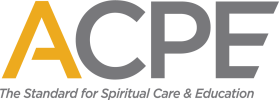Introduction
Spiritual care providers inhabit a role that necessitates specialized knowledge and skills to address spiritual care needs.
Understanding one’s role and the power and authority embedded within it are essential to providing spiritual care interventions. Learning practical communication styles and skills are necessary to develop spiritual care relationships. One way of addressing the spiritual care needs of care receivers is to utilize cultural, religious, and spiritual resources that support wellbeing.
Spiritual Assessments provide the framework for guiding appropriate spiritual care interventions. Spiritual Assessments, which are distinct from spiritual histories or spiritual screenings, are tools that empower the spiritual care provider to determine the greatest needs and resources that are present. They will support greater collaboration with the larger team through a shared meaning and understanding of spiritual care plans. In many contexts, this integration and collaboration are achieved through documentation. While not every context utilizes documentation, learning about documentation enables integrated care and teamwork that is required in a variety of settings.
The specialized role, knowledge and skills involved in these interventions enable spiritual care providers to provide uniquely helpful care. Successful integration of these interventions and resources equips spiritual care providers with the skills to address the spiritual wellbeing of those in their care.
CPE guides students through the formational and experiential learning process and the interventions necessary to address spiritual distress. Spiritual care includes understanding one’s role and the power and authority embedded within it. As students develop spiritual care relationships, they will explore their formational development and learn the practical communication styles and skills necessary for effective spiritual care. One way of addressing the spiritual care needs of care seekers is to utilize cultural, religious, and spiritual resources that are congruent with their values and beliefs.
Outcome 1: Develop Spiritual Care Relationships
| Level IA | Level IB | Level IIA | Level IIB |
|---|---|---|---|
| IA.12 Demonstrate the ability to represent one’s role and function when initiating spiritual care relationships. | IB.12 Articulate an understanding of power dynamics and one’s authority when providing spiritual care. | IIA.11 Demonstrate flexible communication styles and skills, including trauma informed approaches, that develop spiritual care relationships using one’s authority. | IIB.10 Evaluate one’s use of communication styles and skills, including trauma informed approaches. |
| IA.13 Demonstrate an understanding and initiate use of communication styles and skills in spiritual care relationships. | IB.13 Articulate how one’s communication styles and skills, including trauma informed approaches, develop spiritual care relationships. |
Outcome 2: Use of Cultural, Religious, and Spiritual Resources
| Level IA | Level IB | Level IIA | Level IIB |
|---|---|---|---|
| IA.14 Demonstrate an understanding and initiate the use of spiritual resources that address spiritual wellbeing. | IB.14 Articulate how one uses spiritual resources when providing spiritual care. | IIA.12 Demonstrate one’s ability to use spiritual resources in addressing spiritual and organizational well-being. | IIB.11 Evaluate one’s use of spiritual resources in addressing spiritual and organizational well-being. |
Outcome 3: Use of Spiritual Assessments and Care Plans
| Level IA | Level IB | Level IIA | Level IIB |
|---|---|---|---|
| IA.15 Demonstrate an understanding of the difference between spiritual assessments and spiritual histories/screens. | IB.15 Articulate how one uses spiritual assessments when one provides spiritual care. | IIA.13 Demonstrate how one’s interventions address the assessed spiritual needs/strengths. | IIB.12 Evaluate one’s use of assessments, interventions, and plans of care when one provides spiritual care. |
Outcome 4: Documentation
| Level IA | Level IB | Level IIA | Level IIB |
|---|---|---|---|
| IA.16 Demonstrate an understanding of the role of documentation in the provision of spiritual care. | IB.16 Articulate how one uses documentation when providing spiritual care, as appropriate to one’s context. | IIA.14 Demonstrate the ability to document when one provides spiritual care as appropriate to one’s context. | IIB.13 Evaluate one’s ability to document as appropriate to one’s context. |


